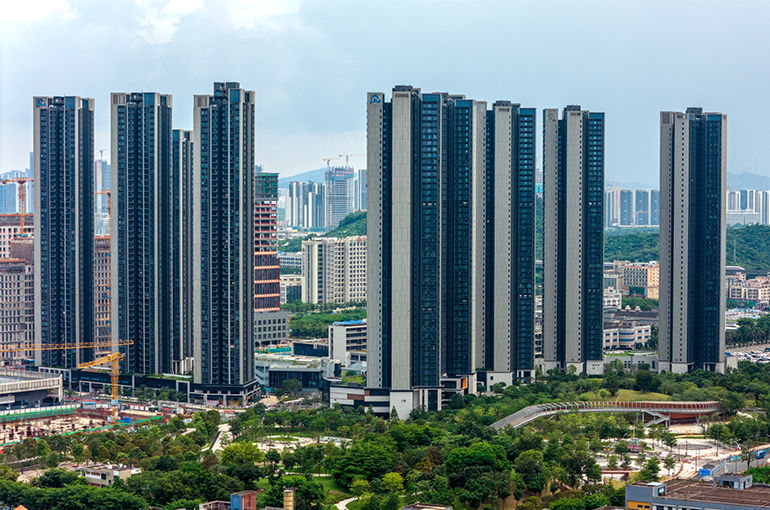 China's Income From Land Sales Sinks to Seven-Year Low Amid Real Estate Slump
China's Income From Land Sales Sinks to Seven-Year Low Amid Real Estate Slump(Yicai) Aug. 28 -- The revenue earned by Chinese local governments from the sale of land use rights tumbled to the lowest in seven years in the first seven months, and the rate of decline is speeding up, as the country’s real estate market undergoes a prolonged downturn.
Revenue from the sale of land use rights plunged 22.3 percent from January to July from the same period last year to CNY1.7 trillion (USD249.2 billion), which is the lowest it has been since 2017, according to statistics released by the Ministry of Finance on Aug. 26. This is an increase from the drop during the same period last year of 19.1 percent.
And it continues to fall. In July, this revenue plummeted 40.3 percent year on year to CNY250 billion (USD35.1 billion), a widening of 5 percentage points from June’s decline.
Back in 2021, local governments raked in CNY4.1 trillion (USD575.2 billion) from the sale of land use rights in the first seven months, but after that it started to tumble. For the same period in 2017, the haul was CNY2.3 trillion, while in 2016, it was CNY1.73 trillion.
Since the central government rolled out policies to stabilize the housing market in May, real estate sales in some parts of the country have become more active, Yan Yuejin, vice director of Shanghai-based E-House China Research and Development Institute, told Yicai. But sales remain sluggish in general and this makes it hard for developers to want to invest in land resources.
Many local private real estate developers do not intend to buy land and potential home buyers are still adopting a wait-and-see attitude, so the property market remains in the doldrums, a member of the financial department of a local government in a city in the east of the country told Yicai.
Many developers still carry huge debts and this also hampers their ability to buy land, Yan said. So the drop in local governments’ revenue from the sale of land use rights will continue for a certain period of time.
In the first seven months, the floor area of newly-built houses that were sold slumped 18.6 percent from a year earlier although this was a narrowing of 0.4 percentage point from the first six months, according to data from the National Bureau of Statistics.
And sales of new builds plunged 24.3 percent over the period, although this was a contraction of 0.7 percentage point from the drop in the first six months, the bureau said. The total amount of cash in place for developers sank 21.3 percent, which was a narrowing of 1.3 percentage point.
The sale of land use rights is an important source of revenue for local governments and the constant drop in this revenue stream in the past few years has contributed to the imbalance in local governments’ fiscal earnings and expenditure.
Less revenue from land sales has resulted in less usable funds for local governments, which has meant that some are cutting spending on people’s livelihoods, said Luo Zhiheng, chief economist at Yuekai Securities. It is also likely to raise some debt risk indicators, which will make it more difficult for urban investment firms to raise financing to furnish their debts.
The real estate sector needs to be stabilized to ease the impact on local governments’ finances, Luo said. Government policies should focus on guaranteeing supply, boosting demand and stabilizing housing prices.
In the medium and long term, a new model for the healthy development of the real estate sector needs to be constructed. Industrial structures need to be transformed and new tax sources cultivated in order to turn the drivers of macroeconomic growth to industries and technologies instead of only adding leverage and investment, Luo added.
Editors: Tang Shihua, Kim Taylor